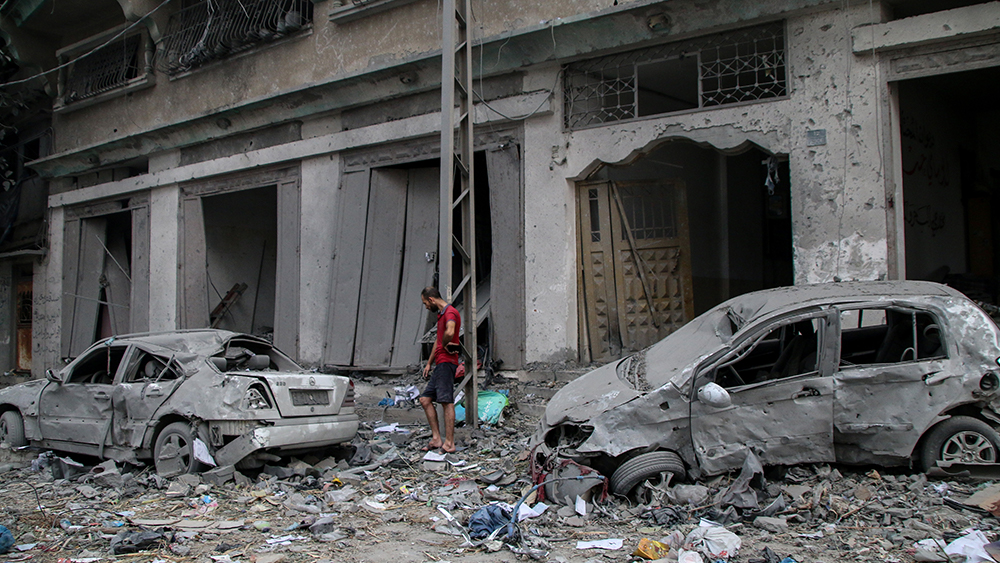 Parler
Parler Gab
Gab
Washington controls Iraqi economy and banking system
With more than $100 billion in reserves held hostage by the U.S., Washington has significant leverage over the Iraqi economy and banking system. In July, the U.S. Treasury sanctioned 14 Iraqi private banks, accusing them of facilitating U.S. dollar transfers to Iran – a country whose economy Washington seeks to suffocate via sanctions. As a result of this, nearly a third of Iraq's 72 banks are now banned from facilitating dollar transactions. In 2022, Iraq's central bank enforced tight regulations under U.S. pressure to ensure dollars do not reach Iran. Bank clients wishing to transfer dollar funds must apply through an online platform and provide detailed information on end recipients before a transfer is approved. "Iraq has been and continues to be a slave to the U.S. dollar," said lawmaker Hussein Mouanes, member of the Finance Committee in Iraq's Council of Representatives. "Every country's economic strength depends on the strength of its currency." "It is clear that Iraq is economically dominated by the U.S., and our government does not truly control or have access to its own money … We believe that it is crucial to move away from the hegemony of the dollar, especially as it has become a tool to impose sanctions on countries. It is time for Iraq to rely on its local currency," he told The Cradle in an exclusive interview back in May. Learn more about the downfall of the American dollar at DollarDemise.com. Watch this newscast about countries that have been selling billions of dollars of U.S. Treasuries. This video is from the Thrivetime Show channel on Brighteon.com.More related stories:
BRICS bloc’s proposed gold-backed currency could spell an END to the US dollar. Brazil and Argentina discuss common currency for financial, commercial transactions that avoiding using the US dollar. BRICS bloc's proposed old-backed currency could spell an END to the US dollar. Sources include: New.TheCradle.co 1 Reuters.com WSJ.com New.TheCradle.co 2 New.TheCradle.co 3 Brighteon.comThousands protest across Middle East in support of Palestinians amid ongoing Israel-Hamas conflict
By Laura Harris // Share
LinkedIn, which discriminates against conservatives, just fired around 700 employees
By Richard Brown // Share
World War 3 could be imminent as Israel-Hamas war escalates, experts warn
By Cassie B. // Share
Rite Aid forced to file for bankruptcy amid slumping sales, high debt and ongoing opioid lawsuits
By Arsenio Toledo // Share
HYPOCRISY: Big Business refuses to condemn Israel’s bombings of Gazan civilians
By Ramon Tomey // Share
Lawless in Gaza: Why Britain and the West back Israel’s crimes
By News Editors // Share
Governments continue to obscure COVID-19 vaccine data amid rising concerns over excess deaths
By patricklewis // Share
Tech giant Microsoft backs EXTINCTION with its support of carbon capture programs
By ramontomeydw // Share
Germany to resume arms exports to Israel despite repeated ceasefire violations
By isabelle // Share










